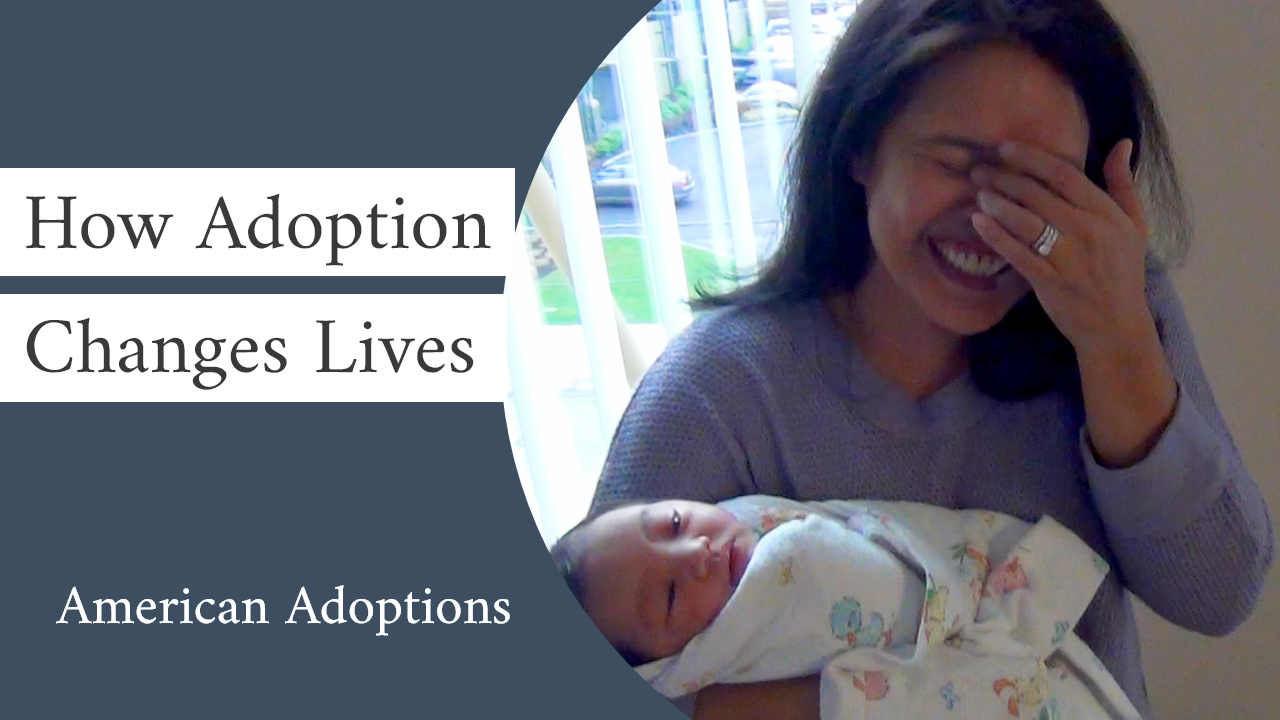How to Choose an Adoption Agency
5 Steps for Choosing the Right Professional

The adoption agency you work with will have a heavy hand in determining the outcome of your adoption process.
That’s why knowing how to choose an adoption agency is so important.
To help you make that crucial decision, this detailed guide will cover tips and best practices on how to find an adoption agency that you can trust and how American Adoptions provides you with the services and support you deserve.
If you have more specific questions about how to choose an adoption agency, then you can get more adoption information now when you contact us online. Below, we’ve listed five steps for finding the right adoption agency for you.
Types of Adoption Agencies
Before diving into the steps of how to choose an adoption agency, it’s important to learn about the three different types of adoption agencies:
- National adoption agencies: National adoption agencies are licensed in multiple states and work across the country. They can serve adoptive families and prospective birth parents in any state. They typically have a larger staff and shorter wait times.
- Local adoption agencies: These are licensed organizations that provide adoption services to clients in a specific area, but they are usually confined to just one state. They typically have a smaller staff and longer wait times.
- International adoption agencies: An international adoption agency helps families adopt a child from another country. Any professional you consider should be a Hague-accredited agency to ensure a fair, legal and ethical process.
Now that you have a better understanding of the types of adoption, here are the five steps for choosing an adoption agency that meets your preferences.
How to Choose an Adoption Agency
Step 1: Choose a Type of Adoption
Your first step will be deciding which type of adoption you’d like to pursue. If you’re choosing domestic infant adoption, then a local or national adoption agency can complete your process. But, there are certain pros and cons of both local and national agencies to bear in mind.
On the other hand, if you’re choosing international adoption, you’ll need to work with a Hague-accredited international adoption agency.
Once you’ve decided on a type of adoption, you can then move on to the next step for how to choose an adoption agency.
Step 2: Research Agencies that Complete Your Type of Adoption
If you’re reading this, then you’ve already taken action on this step! You’re doing research at this very moment. Still, one great way to research adoption professionals is by reading agency reviews from people who have worked with them before.
As you consider how to choose an adoption agency, these reviews will often help you determine if the agency is a good fit for your needs or not.
Step 3: Contact Agencies and Ask Questions
Some things can be answered online. But, for something this important, you need to speak with a professional.
Make a list of your top options after researching potential adoption agencies online, and contact those agencies. You will likely get a sense of whether or not an agency is going to be a good fit for you after spending some time talking to them.
When you call, ask as many questions about their services as you can. For example, you can ask things like:
- What kind of pre-adoption education and training do you provide?
- What kind of adoption advertising do you do?
- What is your estimated cost of adoption, and what is included in that cost?
- How do you prevent adoption disruptions, and how do you protect hopeful adoptive families if a disruption does occur?
- How will you support my family and the prospective birth mother?
- How is your agency licensed?
- What are your average wait times?
As the adoption professional answers these questions, be on the lookout for:
- Transparency: An adoption agency should be open and honest about what the cost of adoption will be and what that cost covers.
- Clarity: Some adoption agencies will throw out short wait time estimates with no clear data to support it. Look for an agency that carefully tracks numbers and gives you accurate, clear answers.
- Professionalism: The best adoption agencies will be fully licensed and have staff members who are certified experts with degrees in social work or counseling.
Step 4: Choose Your Adoption Agency
Once you’ve done the research and asked the right questions, the next step for how to choose an adoption agency is making the actual decision. This choice is ultimately up to you, as only you know what is best for you and your situation.
There’s not necessarily one right answer that will work for everyone. Based on the type of adoption you’re pursuing, you can pick an adoption agency that meets your standards and specific needs and preferences.
Step 5: Start the Adoption Process
Now, you have chosen an adoption agency and are ready to begin the adoption process. Keep in mind that the first steps of the process vary depending on your professional.
Adoption is beautiful, but it is also challenging. Prepare for a process that will include moments of both joy and frustration. Just as with anything in life, there are ups and downs throughout the adoption process. At the end of it all, though, your family will grow, and your life will be changed forever.
All along the way, a great adoption agency will support you and ensure as smooth and stress-free of a journey as possible..
We’re Ready to Help You
Here at American Adoptions, we understand what it takes to safely complete an adoption. We’ve helped families like you pursue this wonderful family-building option for more than 30 years.
Adoption is a complex process and you need a professional who can navigate each step to ensure your journey is legal and your finances are protected.
When working with our agency, you can feel confident knowing you are receiving the support you deserve and the services you need to complete your journey are provided at every turn.
If you have any more questions about how to choose an adoption agency or you’re ready to learn more about pursuing adoption with us, then you can fill out our online form to get free adoption information now.
Disclaimer
Information available through these links is the sole property of the companies and organizations listed therein. American Adoptions provides this information as a courtesy and is in no way responsible for its content or accuracy.

